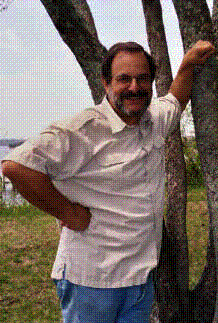LITR 4333: American
Immigrant Literature

Student Poetry Presentation 2006
Tuesday, 11 April
Poem:
Michael S. Glaser, “Preparations for Seder,” UA
176
Poetry
reader: Joanna Harlan

Michael
S. Glaser was born in Chicago in 1943. Glaser received his B.A. from
Denison University and his M.A. and Ph.D. from Kent State University. He began
teaching at St. Mary's College of Maryland in 1970. He lives in St. Mary's City
with his wife, Kathleen, and is the proud father of five grown children. He has
received many awards ranging from the Homer Dodge Endowed Award for Excellence
in Teaching to the Poet Laureate of Maryland.
A few
definitions:
Seder- The feast
commemorating the exodus of the Jews from Egypt, celebrated on the first night
or the first two nights of Passover
Schmaltz-
Liquid fat, especially chicken fat
Matzoh balls-
Jewish dumplings, usually served in chicken soup
Cracklings-
Small bits of schmaltz
Objective 2d
1st generation-As she cooks, the
poet’s grandmother feeds cracklings to the children at her side (lines
3-4). She is “clueless” of the ramifications that might come from eating
pure chicken fat, however she is also seen as “heroic” in her overcoming the
Jewish oppression of her time.
2nd generation-This
is seen as being the poet’s father. He is not only the little boy who awaited cracklings
from his mother, but is also the man whose voice “[echoed]…warnings of
carcinogens in the fat of animals” (lines 16-17). The poet’s father is part
of a generation that is divided between traditional ideas and the realities of
the New World.
3rd generation-The
poet, Michael Glaser, has assimilated comfortably into American ways. Not only
do his father’s fears not phase his choices for meat, but his he actually
“[wants] more” of this “succulent and dangerous” treat.
Questions
- It
is clear why the matzoh balls are “succulent and dangerous”, but
why would he describe the “promised land” in such a way?
- Why
does it leave them “wanting more”?
- What
significance does the line: “Now the fat is plentiful, preserved with
chemicals”?
Bibliography
http://www.alsopreview.com/columns/intersections/jnonions.html
http://www.smcm.edu/users/msglaser/poet%5Flaureate/
http://www.csmd.edu/News/newstorage/archive_2004/nov/Michael%20Glaser.htm
http://dictionary.reference.com/
|
|
|
|


